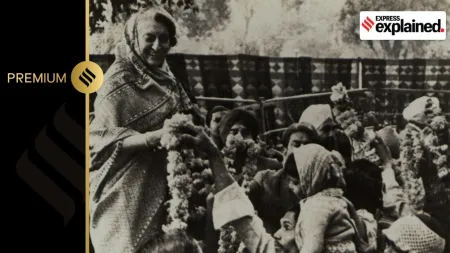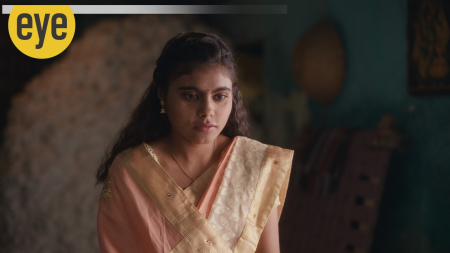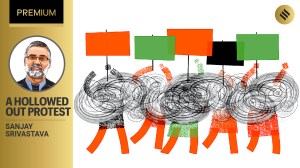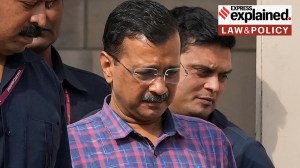- India
- International
Urban poor feel major crimes have dipped, but trust in police remains low
In part 5 of this series, Lokniti-CSDS’s study on the urban poor tries to assess how people living in Delhi’s slums perceive the current law and order situation in the capital and to what extent they trust the police and assess the work done by them.
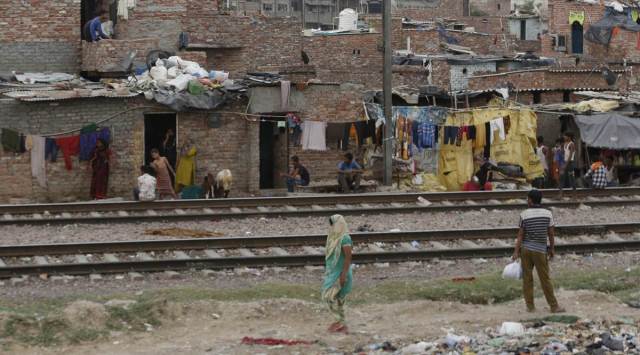 Close to seven in every ten respondents said that crimes against women such as teasing and harassment also went down in their locality. (File)
Close to seven in every ten respondents said that crimes against women such as teasing and harassment also went down in their locality. (File)When it comes to law and order, there is prejudice that people living in slums and unauthorised colonies are more prone to commit crimes. This presumption also shapes slum dwellers’ trust in police as an institution. In part 5 of this series, Lokniti-CSDS’s study on the urban poor tries to assess how people living in Delhi’s slums perceive the current law and order situation in the capital and to what extent they trust the police and assess the work done by them.
The police department and other law enforcement agencies in Delhi, unlike other states, are managed by the Union Ministry of Home Affairs.
Trust in police
Three in ten slum dwellers said they do not trust the police at all whereas a little over one in four (28%) said that they have a great deal of trust in police. Close to one-third (31%) said they somewhat trust the police (Table
1). The findings also suggest that half of those surveyed are willing to approach the police to resolve a dispute; whereas close to two-fifth said they would try to resolve their disputes peacefully through negotiation within the groups.
 Three in ten slum dwellers said they do not trust the police at all whereas a little over one in four (28%) said that they have a great deal of trust in police. Close to one-third (31%) said they somewhat trust the police.
Three in ten slum dwellers said they do not trust the police at all whereas a little over one in four (28%) said that they have a great deal of trust in police. Close to one-third (31%) said they somewhat trust the police.
The urban poor’s hesitation in approaching them is shaped by their experience in dealing with the force. When respondents were asked about police’s behaviour towards slum residents when approached for investigating an incident, close to one-third said police asked for money, 14% said they intimidated people, while 28% said they genuinely helped people.
Five per cent of the urban poor also claim police arrest them despite being innocent (Table 2).
Close to two-fifth also think police favour one group of people. Amongst them, 36% reported that the police favour those who offer them bribes, 28% think they side with the rich, while 11% said they favour the powerful.
Present law & order situation in slums

In the survey, it was found that in the past two-three years, police presence in slums has increased as reported by one-third of slum dwellers. Respondents also reported that there has been a steady rise in minor crimes, but said major crimes have witnessed a sharp decline.
43% of slum residents reported that minor crimes like fights, brawls, and snatching have increased in their locality. Whereas 79% reported that forcible possession of house/ land has decreased, and four-fifth reported that conflicts over religious issues in slums have decreased.
Close to seven in every ten also said that crimes against women such as teasing and harassment also went down in their locality.
While the police have controlled crime significantly, a more focused approach is required to rebuild trust among the poor in slums.
The author is a researcher at Lokniti-CSDS, Delhi. For the study, 1,080 people spread across 55 slums covering all 11 districts of Delhi were interviewed using a structured questionnaire by means of face-to-face interview method. The interviews were conducted by trained field investigators for three months (November 2021 to January 2022).
Must Read
May 11: Latest News
- 01
- 02
- 03
- 04
- 05





